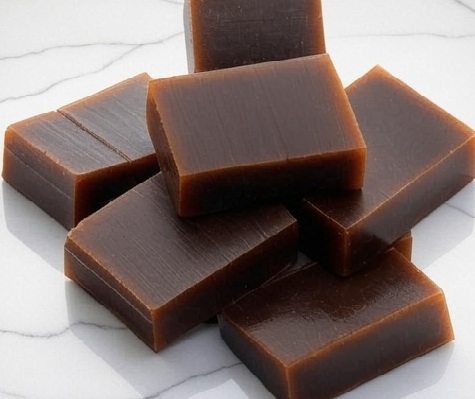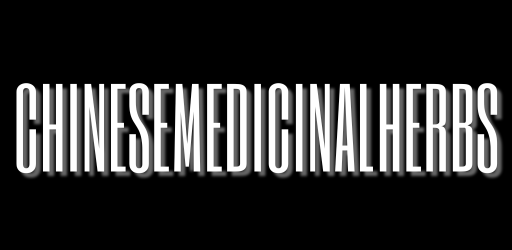Donkey-Hide Gelatin Chinese Herb

Donkey-Hide Gelatin (E Jiao): A Rich Tonic for Blood, Yin, and Rejuvenation
Introduction
Donkey-hide gelatin, known as E Jiao (阿胶) in Traditional Chinese Medicine (TCM), is a luxurious and deeply nourishing tonic used to replenish blood, enrich yin, and stop bleeding. Traditionally prepared from the gelatin of donkey skin, E Jiao is revered for its ability to restore vitality, improve complexion, and support women’s health—especially during or after menstruation, childbirth, or periods of exhaustion. Its slightly sweet, neutral nature makes it a premier remedy for recovery, aging, and weakness due to blood loss or yin deficiency.
What Is Donkey-Hide Gelatin?
E Jiao is a traditional medicinal gelatin derived from boiling donkey skin into a thick extract and drying it into a hard resin-like form. In TCM, it is considered sweet and neutral and enters the Lung, Liver, and Kidney meridians. It is traditionally used to tonify the blood, nourish yin, moisten dryness, and stop various types of bleeding. Its restorative properties make it especially valued for women, the elderly, or anyone recovering from long-term illness or physical depletion.
Health Benefits of Donkey-Hide Gelatin
Tonifies Blood and Treats Deficiency
E Jiao is one of the most famous blood tonics in TCM, used to treat symptoms like dizziness, pale complexion, fatigue, and palpitations.
Stops Bleeding Internally
It is often used to stop bleeding caused by blood deficiency, including uterine bleeding, spotting, or coughing up blood.
Moistens the Lungs and Soothes Dryness
Its yin-nourishing nature helps relieve dry coughs, especially with blood-streaked sputum or dryness due to lung heat.
Enhances Complexion and Skin Vitality
By enriching blood and yin, E Jiao helps improve skin tone, moisture, and luster, especially for those with dry or sallow skin.
Strengthens Reproductive Health and Recovery
It’s commonly prescribed for postpartum recovery, menstrual irregularities, or infertility caused by blood/yin deficiency.
How to Use Donkey-Hide Gelatin
In Warm Decoctions or Soups
Dissolve 6–12 grams of E Jiao in warm herbal decoctions or soups after cooking. Commonly combined with herbs like Dang Gui, Shu Di Huang, or goji berries.
In Tonic Congees and Jellies
Melt E Jiao into black sesame, walnut, or rice porridge to create nourishing jellies or congees that restore energy and blood.
As a Ready-Made Product
Available in pre-cooked tonics, powders, or “Ejiao cakes” often mixed with nuts, seeds, and herbs for convenience and flavor.
Where to Buy Donkey-Hide Gelatin
You can find E Jiao at the following places:
- Chinese herbal medicine pharmacies
- High-end TCM retailers or specialty apothecaries
- Online outlets such as iHerb, Amazon, or TCM health brands
Look for:
- Authentic E Jiao made from Equus asinus (donkey hide)
- GMP-certified, lab-tested products
- Clear labeling of ingredients and origin (avoid counterfeit sources)
Are There Any Side Effects?
Donkey-hide gelatin is generally safe but should be used with care in those with poor digestion, dampness, or excess phlegm. It may be too cloying or rich for people with Spleen qi deficiency unless combined with digestive herbs. It should be avoided during active infections, heavy bleeding, or pregnancy unless under professional guidance.
Conclusion
Donkey-hide gelatin, or E Jiao, is a prized TCM remedy for deeply nourishing blood, enriching yin, and restoring vitality. Whether melted into soups, blended into tonics, or consumed in traditional desserts, this rich herbal extract brings warmth, strength, and rejuvenation—especially during recovery, aging, or chronic depletion.
FAQs
Can I use donkey-hide gelatin every day?
Yes, it’s often taken daily in small amounts as a tonic, especially during postpartum or long-term recovery periods.
What does donkey-hide gelatin taste like?
It has a mildly sweet, slightly musky flavor and becomes silky-smooth when melted.
Is donkey-hide gelatin safe for children?
Yes, in smaller doses and under practitioner supervision—especially for anemia, frequent nosebleeds, or lung yin deficiency.

